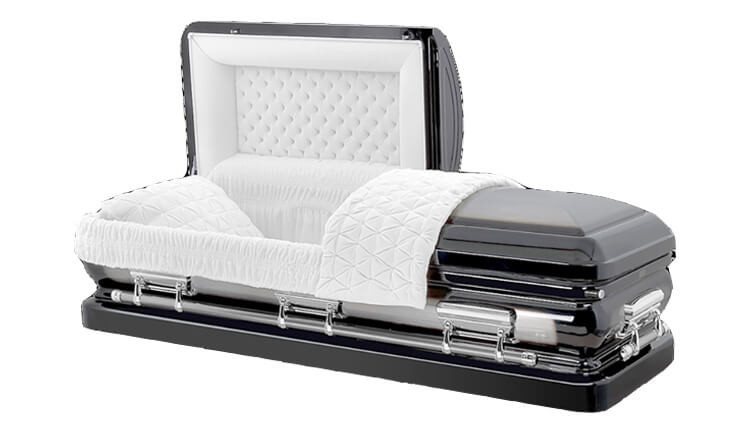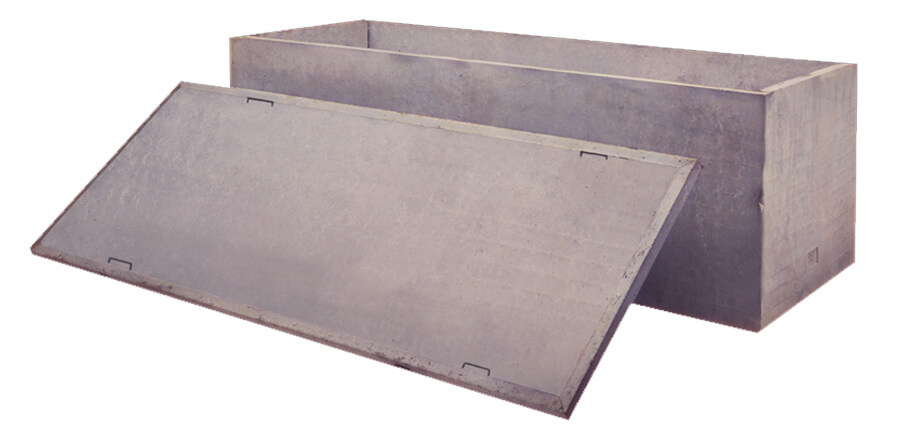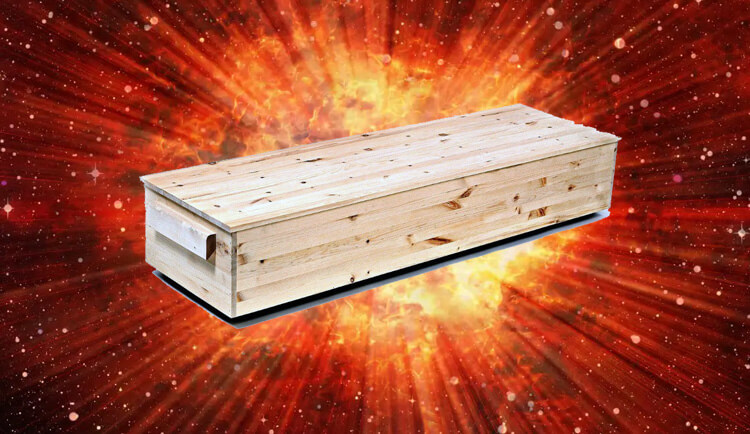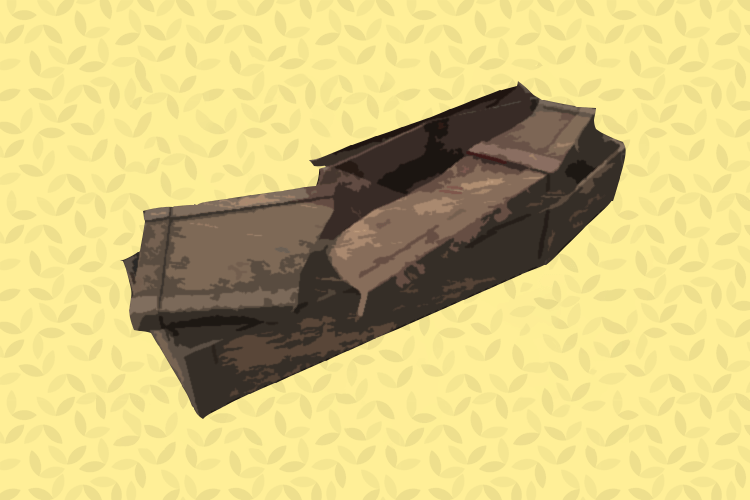People spend thousands of dollars on coffins and caskets, only to bury them in the ground and never see them again.
Given the amount of money funeral homes are making from selling them, you would expect them to stand the test of time. Unfortunately, they don’t.
Caskets decompose in the ground. The rate at which this occurs varies depending on the type of casket, the elements in the soil, and its condition. Typically, wooden coffins may take a few years to collapse after being buried, while metal ones are more resistant and can last longer.
Of course, no two caskets will likely decompose in the same way or at the same rate. Further, some cemeteries require the use of concrete burial vaults, which depending on how they are lined might also extend the life of a casket.
In this article, I will address everything you need to know about the decomposition of caskets, including which caskets last the longest (and which last the shortest!). Read on to learn more.
In This Article
What Happens to Caskets in the Ground?
After being transported from the funeral home and covered with soil and a headstone, a casket will usually lay as it is buried.
For a while.
Eventually, it will rain. And despite manufacturer claims, there is not really such a thing as a “water-tight” or “air-tight” casket.
Air-tight caskets make no sense, as gasses from the dead body need to permeate the soil. A true “air-tight” casket will eventually breach from the increase in pressure inside it. The moment that happens, it is no longer air-tight.
Water-tight caskets sound nice in theory, but even the fanciest 18 gauge sealer casket on the market will usually fail at some point.

Once the water hits, over time, the grave fills and the casket will be worn down by the elements and bacteria in the soil. Most caskets will usually collapse in the long run without a burial vault.
Yes, there are exceptions. For the best chance at prolonging the life of a casket, you would want to:
- Ask a funeral director to find you the driest burial site in the driest ceremony (or a mausoleum).
- Buy the most premium sealing casket on the market.
- Have the casket sealed in a well-built concrete burial vault, lined with plastic.
These are a lot of hoops to jump through to prevent a casket from deteriorating. Even if you find a longer term solution, you will never preserve a casket (or a body, for that matter) forever.
Why Do Coffins Decompose?
As a rule of thumb, caskets decompose because they are constructed from degradable materials, such as wood, metal, fiberglass, and plastic. Wood is most used to build most coffins and is susceptible to decomposition from various bacteria and microorganisms.
Metal and plastic are man-made and more resistant to decay and disintegration.
However, even a strong steel casket will corrode eventually as it reacts to oxygen, hydrogen, dirt, and bacteria in the soil.
How Long Do Caskets Last Underground?
The length of time a coffin will take to decompose underground depends on a vast variety of factors, including:
- The material used: Wood deteriorates faster than metal and will eventually rot.
- The humidity and temperature of the soil the casket is buried in: Hot and humid environments corrode caskets faster.
- The presence of insects, bacteria, and other microorganisms in the soil.
- Whether the casket is protected by a burial vault.

Typically, no casket will last longer than 80 to 100 years underground in a “presentable” form, regardless of the material it is constructed from. Cheaper coffins may decompose in as few as 10 years. Biodegradable caskets made of materials like wicker will usually decay in three to four years.
How Long Do Wooden Caskets Last?
A well-constructed wooden casket will usually last for several decades underground. Some types of wood, like pressure-treated pine or cedar, are more resistant to decay. If the casket is exposed to damp soil, it will likely decompose more quickly and may last less than ten years.
Do Metal Caskets Decompose?
Typically, metal caskets decompose slower than caskets constructed from other materials like wood. Most steel caskets will begin to corrode and rust in 20 to 50 years, depending on the moisture of the soil the coffin is buried in. If they are buried in a waterproof grave vault, they will last longer.
Interestingly, many metal caskets come with a 50+ year warranty. You would think this means metal caskets are guaranteed to last that long. Realistically, there is just no eligible person around 50+ years after the funeral service to claim the warranty, and warranties cannot beat the chemical reactions that cause metal caskets to deteriorate over time.
Does a Coffin Collapse After Burial?
It is not uncommon for caskets to eventually collapse if they are buried in soil that is prone to shifting. However, most caskets are designed to withstand the weight of 6 feet of dirt, so this is a rare occurrence and would never happen immediately after the coffin is buried.
It is most likely to occur if heavy cemetery machinery is driven over a burial plot many years old and not supported by a vault.
Do Caskets Explode?
“Air-tight” caskets can “explode” from the build-up of gases produced by an embalmed, decomposing body. However, this is highly unlikely to occur. In most cases, where pressure builds up in this way, the casket will crack open, releasing any gas.
A case where this occurred was publicized in Melbourne in 2013. Note that while the word “explosion” was used in the headline, what really happened was that a vault’s panel cracked, leading to leakage.

The Bottom Line
Caskets decompose in the ground, but the rate at which this happens varies significantly. It depends on the type of casket used and the soil conditions. If you want to prolong the life of your coffin or casket, you should spring for one made out of a strong material like steel.
However, ultimately, it will break down at some point. It’s only a matter of time. We all become one with the earth eventually.
Given all of the above, it may make sense to forgo the casket entirely and choose cremation or a natural burial.
If you have any further questions about caskets, funerals, or anything else beyond life, please feel free to get in touch or leave a comment below.











